London 2012 – The Olympic Games will be held from 27th July till 12th August, while The Paralympic Games will be held from 29th August till 9th September 2012.
London 2012’s ambition is to create The Games for everyone, where 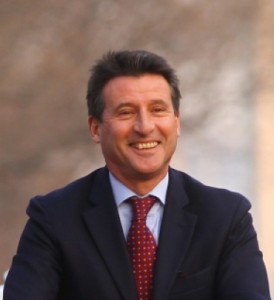 everyone is invited to take part, join in and enjoy the most exciting event in the world.
everyone is invited to take part, join in and enjoy the most exciting event in the world.
Whole world is excited in anticipation for The Olympic Games to start! For this occasion, we wanted to bring The Games 2012 closer to readers of SEEbtm magazine, so we had an opportunity to speak with Sebastian Coe – Chair of the London Organising Committee of the Olympic Games and Paralympic Games.
1. London has the privilege to organize Olympic Games 2012. Could you tell us something about preparations for candidature for such a big event?
With under 200 days to go, we are where we should be and we are extremely proud of the progress we have made over the last six years. Construction of venues on the Olympic Park is over 90% complete and we are working to turn them into competition venues, we are continuing to build a high quality team to deliver the Games, we’ve started to test our venues and there are many opportunities for the public to get involved with the Games.
We do know that the London 2012 Games need to start on the 27th July and we are very conscious of everything we need to deliver over the next 6 months, so we are constantly looking at how we can do something better.
At this key milestone, we want to tell and show everyone that we are getting ready to welcome the world to London in a few months’ time. This is really the moment when we can excite the UK and the rest of the world about the London 2012 Games.
 2. How long does it takes for a city to prepare and to be completely prepared for such an event?
2. How long does it takes for a city to prepare and to be completely prepared for such an event?
Each Organising Committee is given 7 years to prepare to host an Olympic and Paralympic Games. However, a lot of preparation work is done when the potential bid is being put together. We’re very proud of the progress we have made to date and the Olympic Delivery Authority, the body responsible for the construction of venues on the Olympic Park has done an outstanding job making sure the construction remained on time and on budget.
The progress we’ve made is also a testament to the fantastic teams here at LOCOG, our sponsors, delivery partners and stakeholders all working together with one aim – to put on the most fantastic Olympic and Paralympic Games possible.
3. What is the approximate budget for the organization of The Games and who is financing the event?
There are two budgets – one for the London Organising Committee of the Olympic Games and Paralympic Games (LOCOG) and one for the Olympic Delivery Authority (ODA). LOCOG is a privately-funded organisation and our budget is £2 billion – this is the cost of staging the London 2012 Olympic and Paralympic Games. Our budget is raised from sponsors, ticket and merchandise sales and broadcast rights.
4. It is known that the people are most important in the 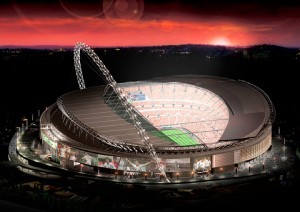 organization. How many people are involved in this organization itself?
organization. How many people are involved in this organization itself?
At the moment we have about 2,500 people working at LOCOG. We are still in the process of recruiting around 3,500 people over the next few months. By Games-time, we will have a total workforce of about 200,000 – which includes the 6,000 paid staff, up to 70,000 volunteers and around 100,000 contractors.
5. How the Games contribute to the profit of the city, comparing with all investments?
The Olympic and Paralympic Games have brought a generation’s worth of investment and regeneration in just a few years. World class sporting facilities, new housing, a new urban park, the new Westfield development and improved transport links have combined to create almost a brand new community in the area. I’m proud that the Games have been the catalyst for this and on top of it all, there will be an extraordinary atmosphere – a real ‘I was there’ type summer.
And looking ahead, I hope the Games will leave the UK public with some fantastic memories of world class sport and of a country which stepped up to the plate to host and celebrate fantastic Olympic and Paralympic Games. In purely physical terms a large area of London will be reborn, with new communities created and much needed state of the art sporting venues which will be available for elite and community use. Above all though I want the Games to leave people inspired – whether it’s inspired to take part in or to continue watching a sport they have seen at London 2012.
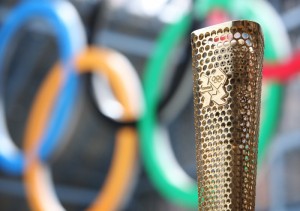 6. What are your expectations regarding influence of The Games to the life and image of London?
6. What are your expectations regarding influence of The Games to the life and image of London?
The Olympic Games and Paralympic Games are the world’s greatest international sporting events and London is probably the world’s greatest international city. We have a fantastic opportunity to showcase the energy, creativity and buzz which emanates from our capital and showcase the best of British to the world.
We have a huge opportunity with the London 2012 Games to show off some of the capital’s most iconic locations, such as Greenwich Park, Horse Guards Parade and Wimbledon. We wanted to use these venues as we knew they would not only be fantastic backdrops but would really engage and inspire people around the world whilst at the same time showcasing everything London has to offer.
We certainly want the London 2012 Games to be the best possible – for athletes, spectators and athletes alike.
We are also very lucky in that most athletes competing at Games time will be doing so in front of a home crowd, thanks to the hundreds of communities that live in London. The British public are mad about sport and we really want to harness that enthusiasm and ensure a great atmosphere in London both in the run-up to and during the Games.
7. It was announced that The Games will leave a legacy of national benefits in culture, sport, volunteering, business and tourism. Could you tell us more about these projects?
When we went to Singapore in 2005, we said we wanted to use the power of the Games to inspire young people around the world to choose sport and our vision was to leave a lasting legacy. These two aspirations have been at the heart of our planning right from the start and I strongly believe that we are well on our way to delivering them.
I am proud to see this happening when meeting young people at schools across the UK who have been inspired by the Olympic and Paralympic Games. I also see it at training venues and witness aspiring young athletes working to improve their personal best, or when I see the east London skyline changing daily thanks to the building of venues on the Olympic Park. But we have also seen this on an international level. Thanks to our International Inspiration programme, more than 12 million children and young people in 19 countries around the world are benefiting from high-quality sport, PE and play opportunities.









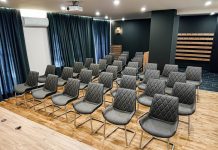












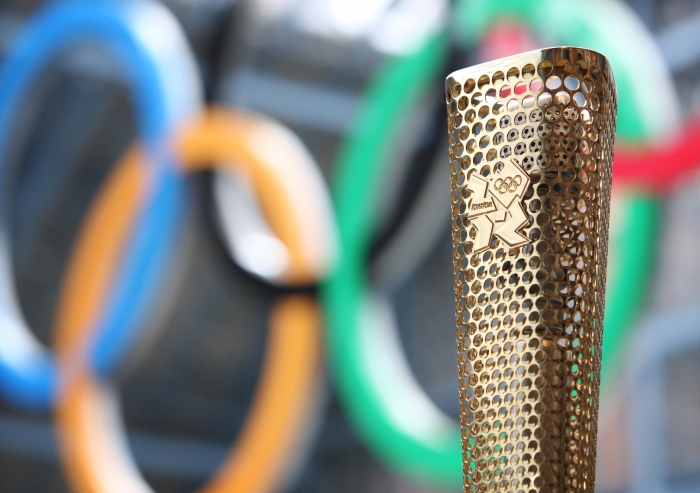
















 Srpski
Srpski English
English